By Richards D. Heuer, Jr
Written by a veteran CIA senior analyst this is another must read book for the Intelligence professional. Since analysis is at the heart of the Intelligence profession, understanding the human biases how we manage the information in our heads is crucial to understanding our own assessment and our customers mindset. Heuer’s message is that we have to study the primary analytic mechanism—the human mind—and the way it processes information in order to improve our ability to generate better intelligence estimates.
Naval Intelligence Professionals Bookshelf
A Recommended Reading List
Led by RADM Tom Brooks (Ret.) and ISCM Dave Mattingly (Ret.), NIP has constructed a list of books (fiction and non-fiction) which are considered to be “classics” in each of the intelligence disciplines.
The beginnings of this list are included below. The object is to list two or three of the best books in each discipline, and we anticipate that the list will undoubtedly change over time as the readership suggests books that they consider better than the ones on the current list.

SUBJECTS
- *MUST READ* (6)
- China (9)
- Counterintelligence (4)
- Cyber & Information Warfare (3)
- Fiction (5)
- Human Intelligence (HUMINT) (2)
- Intelligence Analysis/Indications and Warning (5)
- Intelligence and National Decision-making (5)
- Leadership (11)
- Naval Intelligence History (General) (9)
- Naval War College Digital Commons (3)
- Other Reading Lists/Key Resources (11)
- Special Operations / Counter Terrorism (3)
- WWI/WWII/Cold War (12)
*MUST READ* China Counterintelligence Cyber & Information Warfare Fiction Human Intelligence (HUMINT) Intelligence Analysis/Indications and Warning Intelligence and National Decision-making Leadership Naval Intelligence History (General) Naval War College Digital Commons Other Reading Lists/Key Resources Special Operations / Counter Terrorism WWI/WWII/Cold War
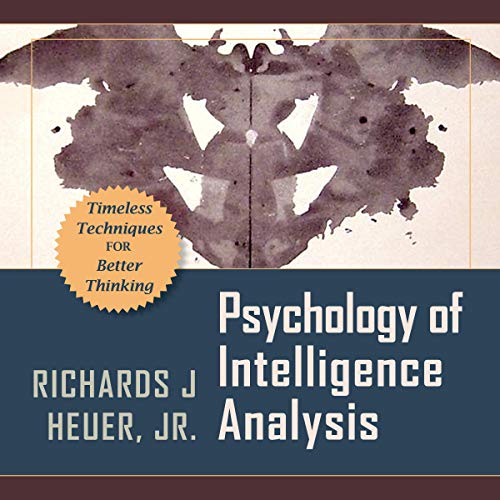
Psychology of Intelligence Analysis
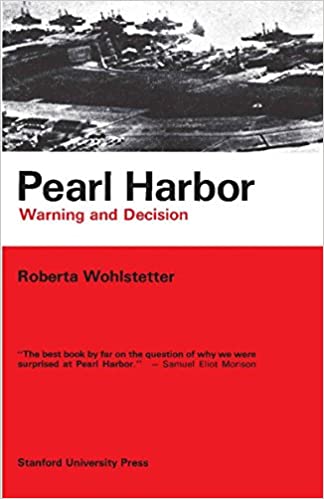
Pearl Harbor Warning and Decision
By Roberta Wohlstetter
For decades the controversy has raged: Was the Pearl Harbor disaster a result of criminal negligence by military officers in the Pacific theater? Was it, as some have claimed, a deliberate plot by the President in Washington?
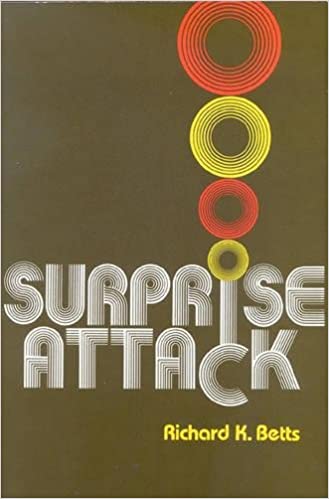
Surprise Attack
By Richard K. Betts
Long before Germany's blitzkrieg swept the West, European leaders had received many signals of its imminence. Stalin, too, had abundant warning of German designs on Russia but believed that by avoiding "provocative" defensive measures he could avert the attack that finally came in June 1941. And the stories of the Japanese attack on Pearl Harbor, the Korean War, and three Arab-Israeli conflicts are replete with missed opportunities to react to unmistakable warnings. Richad K. Betts analyzes surprise attacks during the mid-twentieth century to illustrate his thesis: surprise attacks occur, not because intelligence services fail to warn, but because of the disbelief of political leaders.
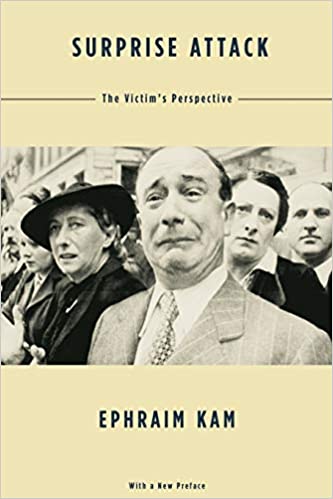
Surprise Attack, The Victim's Perspective
By Ephraim Kam
Ephraim Kam observes surprise attack through the eyes of its victim in order to understand the causes of the victim’s failure to anticipate the coming of war. Emphasizing the psychological aspect of warfare, Kam traces the behavior of the victim at various functional levels and from several points of view in order to examine the difficulties and mistakes that permit a nation to be taken by surprise. He argues that anticipation and prediction of a coming war are more complicated than any other issue of strategic estimation, involving such interdependent factors as analytical contradictions, judgmental biases, organizational obstacles, and political as well as military constraints.
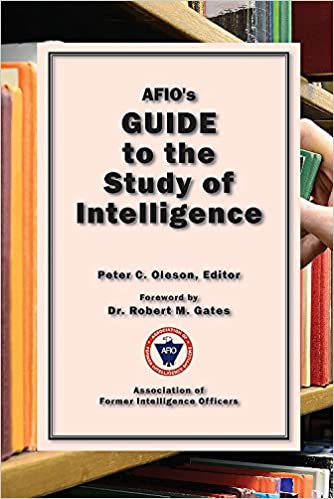
Guide to the Study of Intelligence
By Peter C. Oleson
Perfect for professors, students, those considering careers in intelligence, and current/former officers seeking to see what changes are taking place across a wide spectrum of intelligence disciplines.
